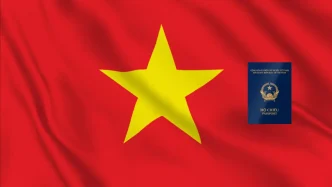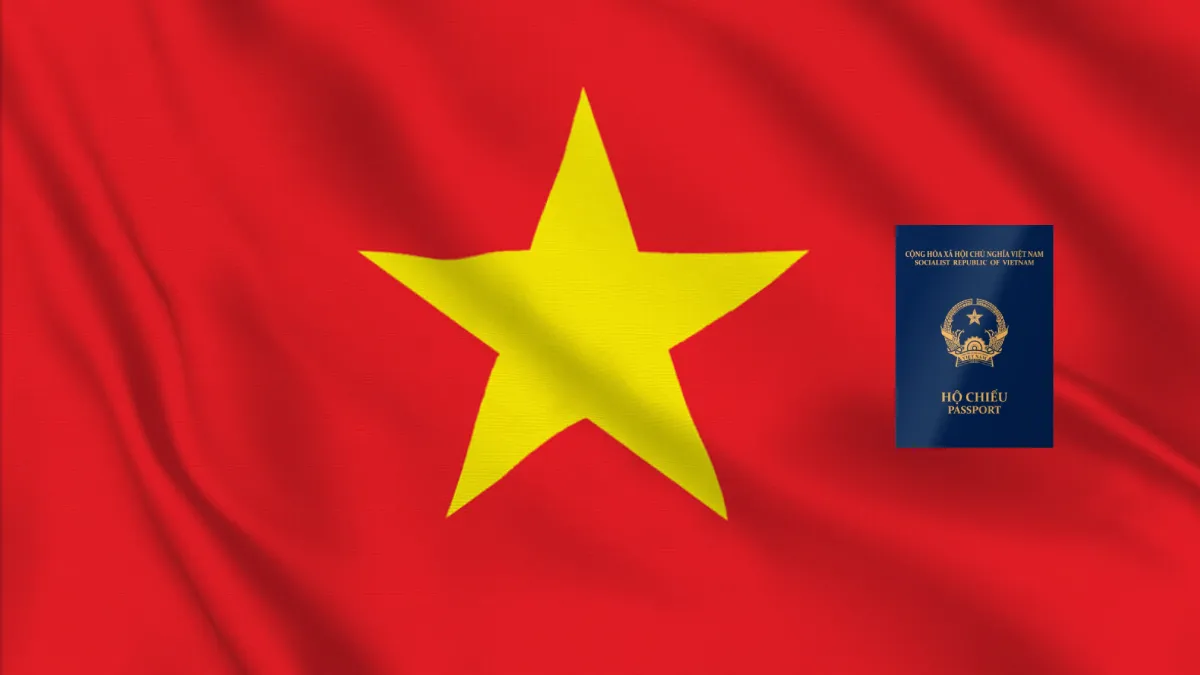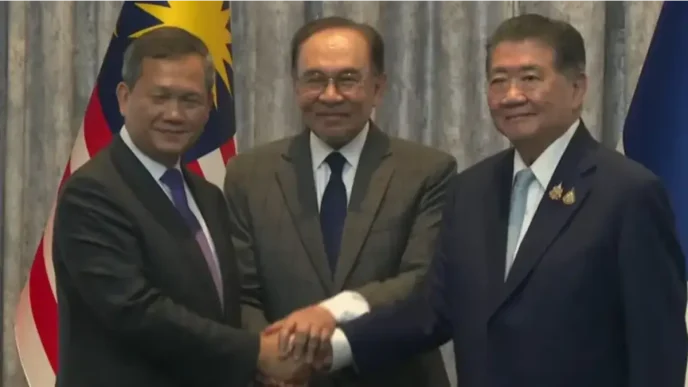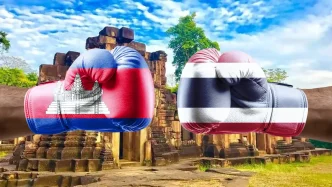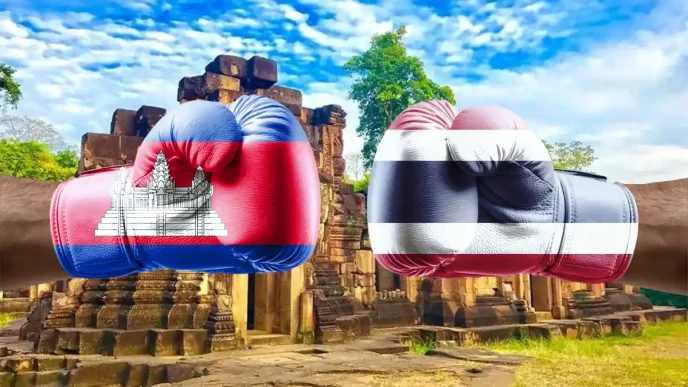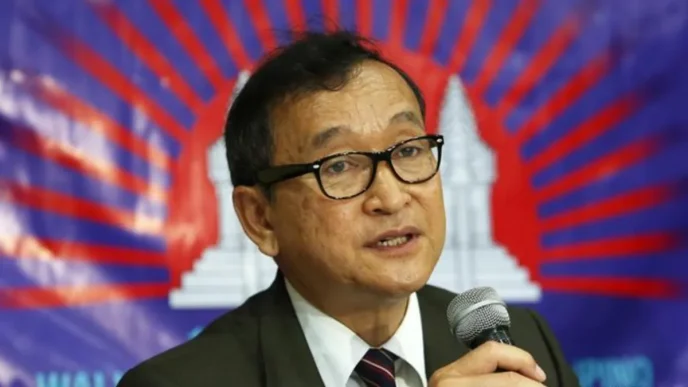In a significant stride for international mobility, Vietnam’s passport has climbed seven places to rank 84th out of 199 countries and territories in the Henley Passport Index for the third quarter of 2025. Announced on July 22 by UK-based Henley & Partners, this rise from 91st earlier this year and 87th in 2024 reflects growing global confidence in Vietnam, opening new doors for its citizens in tourism, trade, and diplomacy.
A Leap in Global Standing
Vietnamese passport holders can now access 51 destinations without a traditional visa, a figure on par with several other developing nations. This access includes visa-free travel or simplified entry procedures such as e-visas, visas on arrival, or electronic travel authorizations (ETAs), as tracked by data from the International Air Transport Association (IATA). The jump in ranking marks one of Vietnam’s most notable advancements since Henley & Partners began monitoring global passport access nearly two decades ago.
Within Southeast Asia, Vietnam’s passport now outranks Laos at 92nd and Myanmar at 93rd, though it remains far behind regional leader Singapore, which holds the top global spot with visa-free access to 195 destinations. Among the destinations Vietnamese citizens can visit with ease are fellow ASEAN nations such as Thailand, Singapore, Indonesia, and the Philippines, alongside countries in Africa, South America, Central Asia, and South Asia, including Kenya, Panama, Kyrgyzstan, Iran, and the Maldives.
This improvement signals more than just ease of travel. According to policy experts, a passport’s ranking serves as a soft measure of a nation’s political stability, global reputation, and the trust international communities place in its citizens. Vietnam’s upward trajectory in the index mirrors its ongoing efforts to strengthen bilateral diplomacy, modernize its e-passport systems, and negotiate visa waiver agreements with nations across Asia, Africa, and the Pacific.
Diplomatic Progress and Administrative Reforms
The ascent of Vietnam’s passport ranking is no accident. It reflects years of deliberate policy work by the government to enhance the country’s international image. Hanoi has prioritized diplomatic engagements, forging agreements that facilitate easier travel for its citizens while projecting an image of reliability and openness. Upgrades to administrative transparency and the adoption of advanced e-passport technology have also played a critical role, aligning Vietnam with global standards for secure and efficient border management.
These efforts have not gone unnoticed. The trust embedded in Vietnam’s rising passport power is a testament to its foreign policy, which balances regional cooperation within ASEAN with broader outreach to continents as diverse as Africa and South America. For instance, visa-free access to countries like Kenya and Panama underscores Vietnam’s growing footprint in regions beyond its immediate neighborhood, fostering cultural exchange and economic ties.
Moreover, Vietnam’s focus on modernizing its passport system positions it as a forward-thinking player in global mobility. The shift toward e-passports, which incorporate enhanced security features, has bolstered confidence among international partners, reducing barriers to entry for Vietnamese travelers. As Hanoi continues to negotiate reciprocal visa exemptions, the potential for further ranking improvements remains high, promising even greater access for its citizens in the years ahead.
Economic and Cultural Impacts
Beyond diplomacy, the practical implications of this ranking boost are profound, particularly for Vietnam’s tourism sector. With visa-free or simplified access to 51 destinations, outbound travel has become more accessible and appealing to Vietnamese citizens. Data from the National Statistics Office reveals that over four million Vietnamese traveled abroad in the first half of 2025, a striking 53.9 percent increase compared to the same period in 2024. This surge underscores how greater mobility fuels demand for international exploration.
For Vietnamese tour operators, the expanded access translates into opportunities to craft more diverse and premium travel packages. Destinations that once required cumbersome visa processes are now within easier reach, allowing agencies to market unique experiences—from the beaches of the Maldives to the cultural hubs of Central Asia. This, in turn, stimulates local economies as travel-related businesses flourish to meet rising demand.
The benefits extend to other spheres as well. Students, businesspeople, and workers from Vietnam can now engage with international communities more seamlessly, whether pursuing education abroad, sealing cross-border deals, or contributing to global labor markets. Enhanced passport access amplifies Vietnam’s role as a contributor to worldwide culture, trade, and diplomacy, enabling its citizens to represent their nation with pride on a larger stage.
Challenges in a Competitive Region
Despite this progress, Vietnam’s passport remains in the lower-middle tier globally, highlighting the challenges that lie ahead. While the country has surpassed neighbors like Laos and Myanmar, it lags behind other ASEAN peers such as Malaysia and Thailand, whose passports grant access to significantly more destinations. Singapore’s unparalleled position at the top of the index—offering visa-free entry to nearly 200 countries—serves as a reminder of the disparities within the region and the steep climb Vietnam faces to reach similar heights.
Part of the challenge stems from historical and geopolitical factors. Unlike Singapore, which has long cultivated a reputation as a global financial hub with extensive diplomatic networks, Vietnam’s international integration is a more recent endeavor, shaped by decades of post-war recovery and economic reforms. Building trust and reciprocity with a broader range of countries will require sustained effort, particularly with major powers in Europe and North America, where visa barriers for Vietnamese citizens often remain stringent.
Additionally, while visa-free access to 51 destinations is a milestone, many of these locations are within developing regions or smaller economies. Gaining entry to high-demand destinations in the European Union, the United States, or Australia—often seen as benchmarks of passport strength—remains elusive for most Vietnamese travelers. Overcoming these hurdles will depend on Hanoi’s ability to deepen economic ties, enhance security cooperation, and demonstrate the reliability of its citizens abroad.
A Broader Reflection of National Growth
The significance of Vietnam’s passport ranking transcends mere travel statistics. It mirrors the nation’s broader journey of modernization and global integration. Since the implementation of the Doi Moi economic reforms in the late 1980s, Vietnam has transformed from a war-torn country into an emerging economy with increasing influence in international affairs. The passport’s climb in the Henley Index is a tangible indicator of this progress, reflecting how far Vietnam has come in earning the world’s trust.
At the same time, the ranking serves as a motivator for further reform. Experts suggest that continued investment in digital infrastructure, such as streamlined e-visa platforms and secure passport systems, could accelerate Vietnam’s ascent in future indices. Strengthening partnerships within ASEAN and beyond will also be crucial, as regional cooperation often paves the way for mutual visa exemptions and shared mobility benefits.
For ordinary Vietnamese citizens, the rising passport power is a source of pride and opportunity. It symbolizes a country on the move, eager to connect with the world while showcasing its rich culture, dynamic economy, and resilient spirit. Whether it’s a student exploring educational prospects abroad or a family embarking on a long-awaited vacation, the ability to travel with fewer barriers empowers millions to dream bigger and reach further.
Looking Ahead: A Path to Greater Heights
As Vietnam continues to modernize its systems and expand its diplomatic reach, the trajectory of its passport ranking holds promise for even greater mobility. Each step forward in the Henley Passport Index not only reflects past achievements but also opens new gateways for Vietnamese citizens to explore, connect, and contribute on a global scale. The question remains: how far can Vietnam climb as it cements its place in the international community?
For now, the surge to 84th place stands as a milestone worth celebrating—a marker of progress that invites both reflection on the journey thus far and anticipation for the road ahead.

